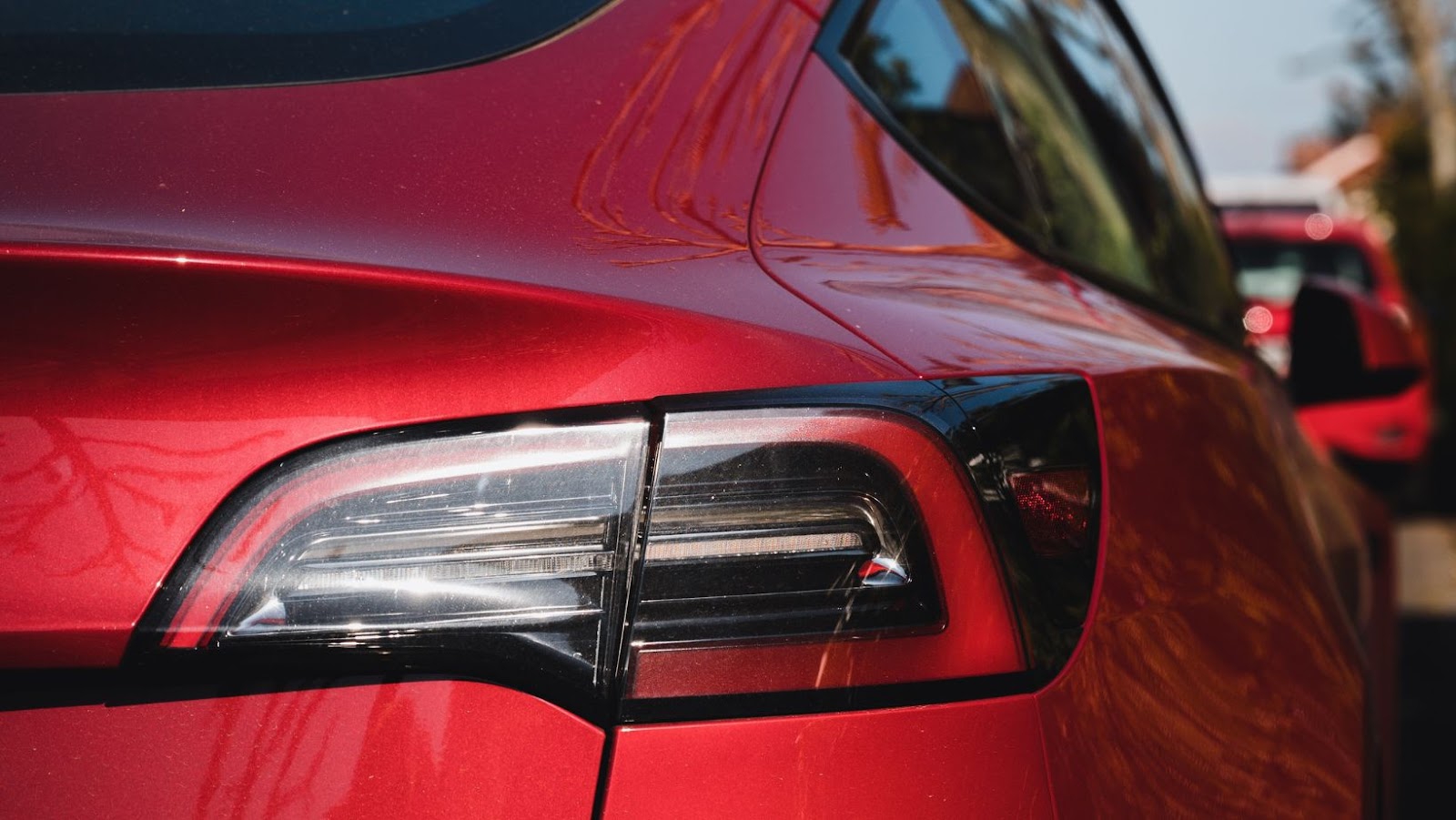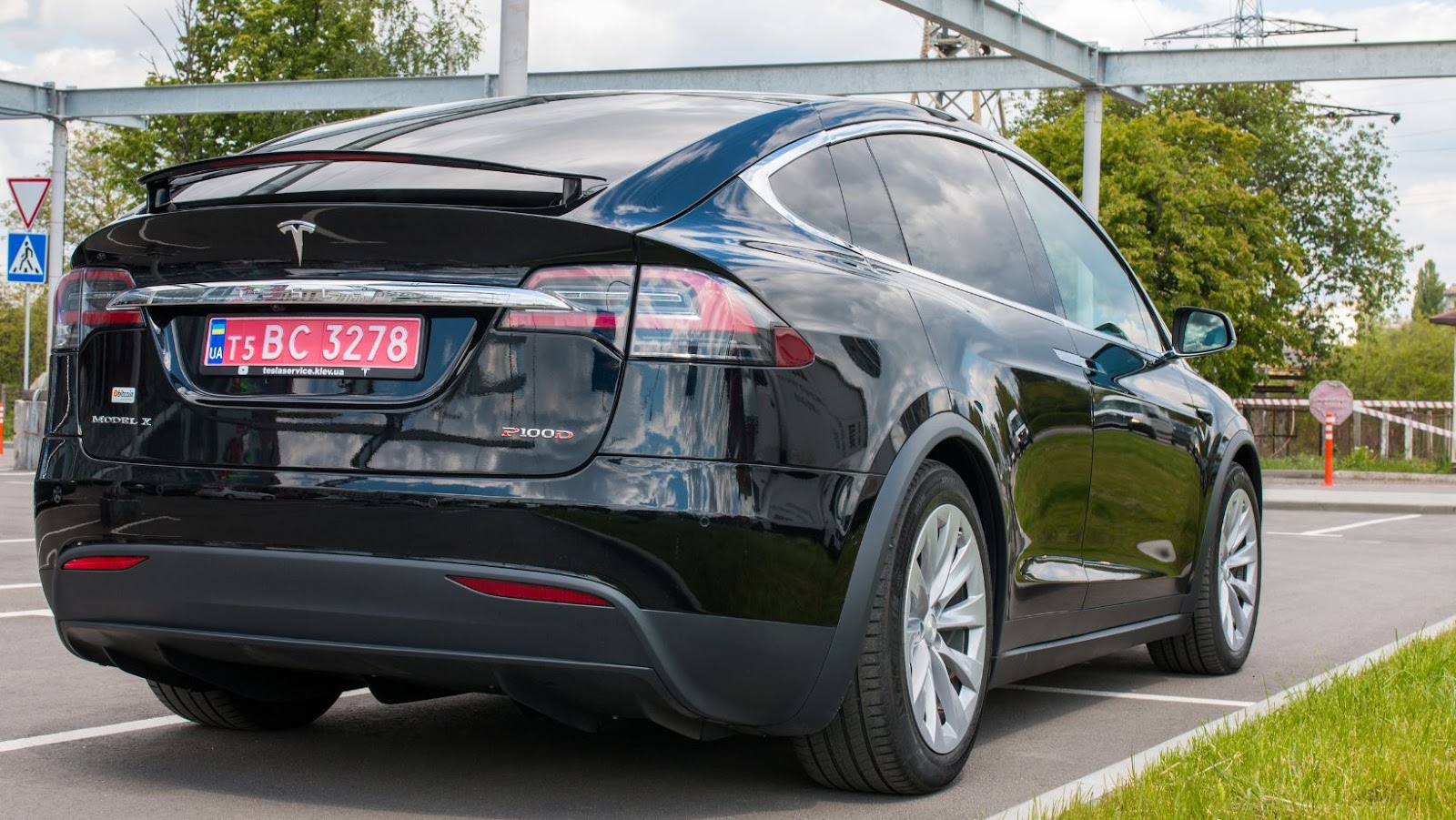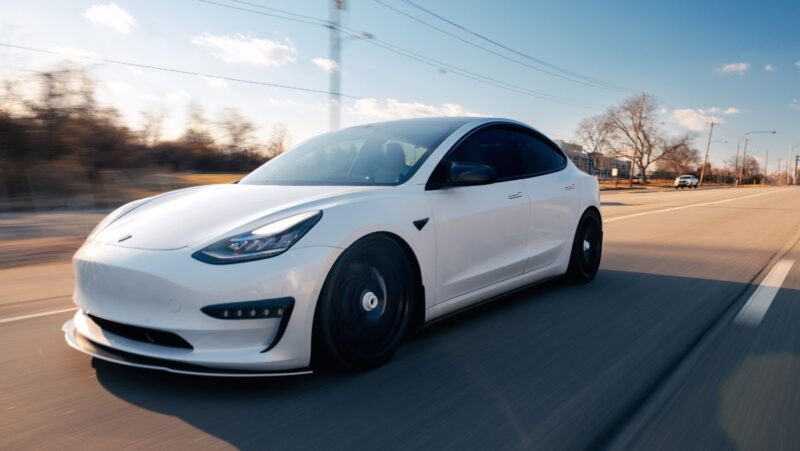Volkswagen has been in the spotlight recently due to their ambitious $50 billion plan to beat Tesla. This plan was set to revolutionise the automotive industry, but has since been short-circuited. In this article, we will discuss why Volkswagen needs to beat Tesla and what steps they can take to make it happen.
We will first cover the history of Volkswagen and how they got to this point, and then we will discuss what steps they can take to make their plan a reality:
- History of Volkswagen
- Why Volkswagen needs to beat Tesla
- Steps to make the plan a reality
Volkswagen’s $50 Billion Plan to Beat Tesla Short-Circuited
Volkswagen is investing $50 billion in electric vehicles and battery technology to overtake Tesla as the world’s leader in producing electric cars. The German automaker is betting on a future powered by electric vehicles, autonomous driving and digitization.
This plan was unveiled in autumn 2018 as a large-scale initiative which includes numerous software investments, hardware expansions and strategic partnerships over multiple years. Over 15 million all-electric cars will be sold under this plan until 2022. Volkswagen intends to take advantage of the booming electric car industry by producing more efficient, reliable and affordable vehicles than ever.
From setting up new high-volume battery production factories to restructuring its internal operations for better efficiency, Volkswagen has undertaken an extensive reorganisation of its business. For instance, it has committed over €25 billion to build up to 17 battery cell production facilities to reduce lithium-ion sourcing costs from suppliers such as LG Chem and Samsung SDI.
Activities such as these attest to Volkswagen’s commitment to becoming a market leader in the new generation of vehicles running on renewable energy sources, making it one of Europe’s most ambitious plans for electrification in the automotive sector.
Tesla’s Dominance
Tesla has become the most innovative vehicle manufacturer in the world and is setting the pace for the automotive industry. The success of the electric vehicle manufacturer has put pressure on traditional automakers like Volkswagen to find a way to compete.
Volkswagen’s recent $50 billion plan to beat Tesla was short-circuited due to the global pandemic, but it may have been their only hope of catching up to Musk’s company. So let’s explore why Tesla’s dominance is a challenge for Volkswagen:
Tesla’s Competitive Advantage in The EV Market
Tesla’s unrivalled success in the electric vehicle (EV) space is largely due to the company’s willingness to constantly innovate, unparalleled brand recognition, and Tesla’s ongoing advancements in autonomous technology. This combination has enabled the company to gain market share and relevance and establish a sizable fanbase of EV enthusiasts.
Tesla was an early innovator in EV development and could capitalise on battery advancements quicker than its competitors. With its strong focus on research and development, Tesla released its first fully electric sedan – the Model S – two years earlier than most automobile companies could. This allowed Tesla to make a play for desirable early adopter customers looking for an exceptional driving experience. In addition, through effective marketing campaigns showcasing the environmentally friendly capabilities of Tesla’s cars, it became the go-to choice for luxury consumers looking for an alternative option over gas-powered vehicles.
In recent years, the larger automotive manufacturers have begun playing catch-up with new EV models that compete with Tesla’s offerings. Still, they have been falling short of expectations regarding sales performance. Tesla has successfully created a brand that consumers trust and look towards when they need an EV solution. The company has established itself as a reliable leader in the industry, reaping benefits such as repeat customers who have had positive experiences driving one of their vehicles before.
Tesla also continually seeks out opportunities to enhance their vehicles’ autonomous capability by continuously updating their software, allowing them greater control over their car’s movements without driver input or supervision. By making driverless cars more accessible through things like downloadable updates and allowing drivers access through wireless network connections provided by mobile device companies, Tesla has kept itself well ahead of other competing automakers in terms of autonomous technology advancements and been able to promote features like AutoPilot consistently which gives their product distinct advantages over traditional EVs from other brands on the market today.
Tesla’s Innovation in The EV Market
Tesla has been a powerhouse in the electric vehicle (EV) market since its establishment in 2003. It has revolutionised the industry, creating some awe-inspiring engineering feats that have set new performance and safety standards. With superior battery technology and a wide range of innovative features such as Autopilot, Tesla’s vehicles have become the benchmark for others to strive for.
The company has pioneered Supercharger networks that stretch across North America, Europe, and Asia, allowing their cars to be quickly charged up mid-journey. Tesla’s vehicles are also equipped with software updates to maintain peak performance, meaning regular improvements over time without additional costs or trips to the dealership. Tesla’s innovation doesn’t stop there; they also operate a network of solar panel installations for further energy efficiency.

Furthermore, Tesla produces some of the most energy-efficient vehicles on the market by recouping what is known as ‘regenerative braking energy’ – energy created when slowing down or stopping the car – and using it during acceleration instead of relying solely on battery power. This allows drivers to maximise battery efficiency and extend driving ranges with minimal effort.
Tesla’s impressive list of accomplishments in research, development and customer service, have made them pioneers in modern EV production. That said, none of these achievements would be possible without Elon Musk at its helm – who serves as both Chief Executive Officer (CEO) and Chief Technology Officer (CTO).
Volkswagen’s Challenges
Volkswagen is one of the world’s biggest automakers but has been slow to catch up to electric car rivals like Tesla. To close the gap with Tesla, Volkswagen has unveiled a massive $50 billion investment to develop electric vehicles. Unfortunately, the ambitious plan has already hit a roadblock, prompting Volkswagen to rethink its strategy for competing with Tesla.
In this article, we will discuss the challenges Volkswagen faces in competing with Tesla:
Volkswagen’s Lack of Experience in the EV Market
In the EV market, Volkswagen currently lags far behind Tesla. While Tesla is the leading player in the EV market with an estimated 14 percent global market share, Volkswagen only commands a mere two percent of the market. This shows that Volkswagen has not yet managed to capitalise on its massive potential in the EV market.
Volkswagen’s current challenge is lack of experience when compared with Tesla. As a relatively new entrant into the EV market, Volkswagen has no historical understanding of consumer demands and preferences – something which Tesla was able to acquire by pioneering its way through this sector for many years before Volkswagen entered it. Additionally, a significant developmental cost must be incurred to bring any model effectively to this rapidly changing landscape. This can be daunting for an inexperienced company such as Volkswagen, who may face difficulty developing a comprehensive, comprehensive model that simultaneously appeals to consumers at all levels.
Even so, Volkswagen’s current lineup of EVs has received praise from industry experts due to its ability to appeal to various consumer segments while remaining cost-competitive on pricing models against other popular electric brands such as BMW and Audi. Moreover, with continued research and development efforts coupled with recent advances in battery technology, VW hopes to become an even bigger presence in the EV world and eventually beat out Tesla as the top player in this sector.
Volkswagen’s Limited Resources
Volkswagen’s ability to compete with Tesla is hampered by its limited resources and lack of technological know-how. Despite its enormous size and impressive market share in the auto industry, VW only has a fraction of the resources of Tesla and other tech heavyweights. In addition, VW is battling issues like a dwindling cash pile compared to Tesla’s hoard, less competitive strengths in software engineering, and fewer strategic investments related to big data, machine learning, artificial intelligence (AI) or software development.
Furthermore, it faces significant challenges in its home region due to a lack of infrastructure for electric vehicles. For example, Germany limits access to high-speed charging networks that can be used for long trips outside the densely populated parts of the country. Without this infrastructure it will be difficult for VW to build an appealing network for customers who want to make long distance trips without worrying about their battery life running out.
Lastly, many Chinese competitors are investing heavily into electric cars and growing their operations – allowing them more room for taking risks than Volkswagen. Since Volkswagen doesn’t have the same technological prowess as many newer companies on the scene, it could risk losing valuable market share if it cannot innovate quickly enough to keep up with them.
Volkswagen’s Plan to Beat Tesla
Volkswagen has set out to achieve something big: to beat Tesla in the electric vehicle game with an ambitious $50 billion investment plan. With the brand already selling more electric cars than any other carmaker, it was only a matter of time before they set out to challenge the industry leader.
Unfortunately, their plans have recently been short-circuited, and now they’ll need to develop a new strategy to succeed. Let’s take a closer look at Volkswagen’s plan to beat Tesla:
Volkswagen’s Partnership With Ford
In 2019, Volkswagen AG and Ford Motor agreed to form a strategic alliance to jointly develop commercial vehicles, electric and autonomous vehicles, and advanced technologies such as connectivity services. The alliance leverages the strengths of its two companies in commercial vehicles, research and development for electric vehicles, autonomous driving and services to offer customers valuable solutions.

The strategic cooperation allows Volkswagen AG to benefit from its scale advantages in Electrification Technology while partnering with Ford Motor Company on high performance autonomous vehicles technology. Furthermore, the partnership gives Volkswagen access to a larger customer base through Ford’s extensive network of dealerships – crucial for success. By investing in commercial and electric vehicle development with Ford Motor Company, Volkswagen is preparing itself for future success against Tesla Motors, which has taken the lead in many aspects.
Both companies are also investing into advancing their capabilities with advanced technologies such as cloud based services, enhanced safety systems and Internet-of-Things (IoT) enabled mobility solutions. This includes plans to develop models utilising shared platforms which results in reduced investments compared to separate projects conducted by each carmaker separately. This step provides both parties a unique opportunity that accelerates innovation while improving competitive positions on an international stage furthering their chances of overtaking Tesla Motors as number one automotive manufacturer by 2025.
Volkswagen’s Plans to Invest in Battery Technology
Volkswagen will invest in and scale up its battery technology to become a leading player in the electric vehicle (EV) industry. With Tesla currently dominating the market, Volkswagen is working to break into the EV space by investing heavily in battery technologies.
Volkswagen plans to invest up to $50 billion into research and development of EVs and battery technology by 2023. The German automaker has already committed $4 billion for this mission, but is now stepping on the gas pedal with more investments to keep up with Tesla. Some of these investments have gone towards producing electric drivetrains, batteries that store energy for use when driving, software developers who create EV-specific apps, and charging solutions that allow EVs to be charged from anywhere.
Also included in Volkswagen’s plan is a focus on life cycle management of its batteries – including collecting used cells for reuse or recycling – which could prove invaluable if it wants to dent Tesla’s lead position in the market. VW’s investment strategy will span various aspects of battery production – from raw materials sourcing to end-of-life recycling strategies. In addition, the firm claims to have invested significantly in “alternative cell chemistries” with and intends on investing significantly more to learn more about energy storage solutions which could one day make EVs a viable alternative to gasoline engines across all vehicle classes.
Conclusion
Volkswagen’s goal to beat Tesla has been hindered due to the recent financial and legal troubles the company has faced. The $50 billion plan to challenge Tesla’s electric vehicle market leadership will take a backseat due to the ongoing investigations into the company’s practices. Even if the company can overcome the legal and financial roadblocks, there is still a long road ahead for Volkswagen to achieve its ambitious goal.
This article has discussed the reasons why Volkswagen needs to beat Tesla and the roadblocks they face in the process:
- Financial and legal troubles.
- Investigations into the company’s practices.
- Long road ahead to achieve the goal.
Volkswagen’s Need to Beat Tesla in The EV Market
Volkswagen needs to prove itself as a leader in the electric vehicle (EV) market, but it’s not just financial stakes at risk. On an ideological level, Volkswagen is up against an ambitious and disruptive pioneer – Tesla.
Tesla brought ideas of efficient and high performance EVs to the forefront of public consciousness, whereas before they had been seen as underpowered and sluggish alternatives.
Volkswagen has the unique opportunity to join Tesla in proving that EVs can compete and surpass their traditional gas-powered counterparts in terms of innovation, power, range, efficiency and overall design. Furthermore, by building its leading position with the ID.3 and upcoming ID.4, VW can show its customers that they are at the cutting edge of automotive technology with a commitment to sustainable transportation solutions.
To fully compete with Tesla and establish itself as a thought leader in environmental technology, Volkswagen must think beyond simply design specifications for its vehicles: It needs to create an entire ecosystem consisting of attractive charging solutions both public and private – plus services such as maintenance programs for existing owners or low-cost subscription plans for potential customers. Volkswagen also needs to address such issues as maintenance costs or finance over time without charging hefty premiums or tying customers into long contracts.
If Volkswagen wants to reclaim its leadership role in this market then it must take ownership over sustainability initiatives beyond its brand image – working with governments around the globe on developing infrastructure investments in EVs so that buyers have easy access points everywhere they go while driving less carbon intensive vehicles than ever before.
How Volkswagen can Leverage its $50 Billion Plan to Beat Tesla
As part of Volkswagen’s $50 billion plan, the auto giant will focus on electric and autonomous vehicle technologies and mobility services. This will enable Volkswagen to compete more effectively against Tesla. To that end, several strategies could help Volkswagen achieve its goal of beating Tesla in the space.
The first strategy is to utilise the company’s massive resources and technology investments to create a portfolio of cutting-edge electric vehicles (EV). Compared to Tesla’s EVs, Volkswagen’s could potentially be cheaper and offer more features. Additionally, Volkswagen should look into potential partnerships such as joint venture initiatives with Chinese companies such as Alibaba or Tencent that are supporting China’s booming EV market.
Another important strategy is for Volkswagen to bolster its autonomous driving technology through acquisitions and collaborations with companies like Waymo and Aurora AI. Self-driving cars are expected to become increasingly commonplace shortly and leveraging this technology could give Volkswagen a competitive edge over Tesla.
Finally, developing an all-encompassing mobility service would be a great step towards beating out Tesla in terms of convenience and user experience. A comprehensive platform that allows users seamless access to services like car rentals or short drives will be highly attractive compared to what is currently offered by traditional car industry providers such as Uber or Lyft. All this should help differentiate itself from competitors like Tesla in ways beyond just building cars – driving uptake among consumers who want vehicles and a set of solutions tailored for their needs.
tags = tesla electric cars, volkswagen car, automobile tesla, volkswagen vehicle manufacturer, tesla automotive company, tesla electric and solar vehicles, volkswagen id.3 teslaboston wall streetjournal, volkswagen teslaboston wall streetjournal, volkswagen automotive company, volkswagen software bugs



More Stories
The Dangers of Online Addiction
What has Been Robinhood’s Involvement in the GameStop Situation?
How can BigScience Help you Build a Powerful Open Language Model?